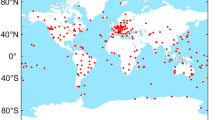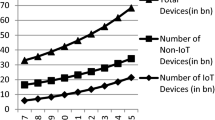Abstract
Many critical infrastructures, such as smart grids, communication systems, and industrial networks, rely on the global navigation satellite system (GNSS) to ensure accurate time synchronization. However, the vulnerability of GNSS receivers to time synchronization attacks (TSAs) poses a significant threat to these infrastructures, potentially leading to severe consequences. Thus, it is imperative to promptly detect TSAs before they have an impact. We propose a method called the enhanced code and carrier Doppler consistency test (E-CCDCT) to address this issue. The proposed method monitors the consistency between the code Doppler shift and carrier Doppler shift to rapidly detect any inconsistency between them caused by a TSA. An additional advantage of E-CCDCT is its ability to provide early warning if a TSA signal attempts phase alignment before spoofing. Experiments for comparison with off-the-shelf TSA detection techniques were conducted using the Texas Spoofing Test Battery datasets. The results confirm that the proposed method exhibits superior detection speed compared to other methods. Furthermore, the proposed method achieves a detection probability of at least 90% at a false alarm rate of 0.1%. Consequently, this method offers exceptional efficiency and accuracy and can serve as a valuable complement to existing TSA detection techniques.










Similar content being viewed by others
Data availability
The Texas Spoofing Test Battery datasets are provided by the Radionavigation Laboratory of the University of Texas at Austin and can be downloaded directly from https://radionavlab.ae.utexas.edu/texbat/.
References
Gao Y, Li G (2022) Three time spoofing algorithms for GNSS timing receivers and performance evaluation. GPS Solut 26(3):87. https://doi.org/10.1007/s10291-022-01275-7
Gao Y, Li G (2023a) A new asynchronous traction signal spoofing algorithm for PLL-assisted DLL receiver. GPS Solut 27(3):141. https://doi.org/10.1007/s10291-023-01478-6
Gao Y, Li G (2023b) Two time spoofing algorithms on GNSS receiver instrumentation of modifying satellite clock correction parameters in navigation message. IEEE Trans Instrum Meas 72:1–11. https://doi.org/10.1109/TIM.2023.3241982
Gao Y, Li H, Lu M, Feng Z (2013) Intermediate spoofing strategies and countermeasures. Tsinghua Sci Technol 18(6):599–605. https://doi.org/10.1109/TST.2013.6678905
Gao Y, Lv Z, Zhang L (2020) Asynchronous lift-off spoofing on satellite navigation receivers in the signal tracking stage. IEEE Sens J 20(15):8604–8613. https://doi.org/10.1109/JSEN.2020.2984525
Gao W, Li H, Zhong M, Lu M (2023a) An underestimated cybersecurity problem: quick-impact time synchronization attacks and a fast-triggered detection method. IEEE Trans Smart Grid. https://doi.org/10.1109/TSG.2023.3258963t
Gao W, Li H, Zhong M, Lu M (2023b) The separate clock drift matched filter to detect time synchronization attacks toward global navigation satellite systems. IEEE Trans Ind Electron 70(6):6305–6315. https://doi.org/10.1109/TIE.2022.3194578
Giri J, Sun D, Avila-Rosales R (2009) Wanted: a more intelligent grid. IEEE Power Energy Mag 7(2):34–40. https://doi.org/10.1109/MPE.2008.931391
He D, Chan S, Qiao Y, Guizani N (2018) Imminent Communication Security for Smart Communities. IEEE Commun Mag 56(1):99–103. https://doi.org/10.1109/MCOM.2018.1700587
Hu Y, Bian S, Li B, Zhou L (2018) A novel array-based spoofing and jamming suppression method for GNSS receiver. IEEE Sens J 18(7):2952–2958. https://doi.org/10.1109/JSEN.2018.2797309
Humphreys TE, Bhatti JA, Shepard DP, Wesson KD (2012) The Texas spoofing test battery: toward a standard for evaluating GPS signal authentication techniques. ION GNSS+ 2012. Institute of Navigation, Nashville Convention Center, Nashville, TN, vol 17–21, pp 3569–3583
Khalajmehrabadi A, Gatsis N, Akopian D, Taha AF (2018) Real-time rejection and mitigation of time synchronization attacks on the global positioning system. IEEE Trans Ind Electron 65(8):6425–6435. https://doi.org/10.1109/TIE.2017.2787581
Lu Q, Feng X, Zhou C (2021) A Detection and weakening method for GNSS time-synchronization attacks. IEEE Sens J 21(17):19069–19077. https://doi.org/10.1109/JSEN.2021.3088138
Moussa B, Al-Barakati A, Kassouf M, Debbabi M, Assi C (2020) Exploiting the vulnerability of relative data alignment in phasor data concentrators to time synchronization attacks. IEEE Trans Smart Grid 11(3):2541–2551. https://doi.org/10.1109/TSG.2019.2957150
Orouji N, Mosavi MR (2021) A multi-layer perceptron neural network to mitigate the interference of time synchronization attacks in stationary GPS receivers. GPS Solut 25(3):84. https://doi.org/10.1007/s10291-021-01124-z
Psiaki ML, Humphreys TE (2016) GNSS spoofing and detection. Proc IEEE 104(6):1258–1270. https://doi.org/10.1109/JPROC.2016.2526658
Shang X, Sun F, Wang D, Xiao K, Dou S, Lu X, Sun J (2023) GNSS spoofing detection based on multicorrelator distortion monitoring. GPS Solut 27(2):94. https://doi.org/10.1007/s10291-023-01438-0
Shepard DP, Humphreys TE, Fansler AA (2012) Evaluation of the vulnerability of phasor measurement units to GPS spoofing attacks. Int J Crit Infrastruct Prot 5(3–4):146–153. https://doi.org/10.1016/j.ijcip.2012.09.003
Truong V, Vervisch-Picois A, Rubio Hernan J, Samama N (2023) Characterization of the ability of low-cost GNSS receiver to detect spoofing using clock bias. Sensors 23(5):2735. https://doi.org/10.3390/s23052735
Wang Y, Kou Y, Zhao Y, Huang Z (2022) Detection of synchronous spoofing on a GNSS receiver using weighed double ratio metrics. GPS Solut 26(3):91. https://doi.org/10.1007/s10291-022-01268-6
Wesson KD, Gross JN, Humphreys TE, Evans BL (2018) GNSS signal authentication via power and distortion monitoring. IEEE Trans Aerosp Electron Syst 54(2):739–754. https://doi.org/10.1109/TAES.2017.2765258
Yao W, Lu H, Till MJ, Gao W, Liu Y (2018) Synchronized wireless measurement of high-voltage power system frequency using mobile embedded systems. IEEE Trans Ind Electron 65(3):2775–2784. https://doi.org/10.1109/TIE.2017.2736509
Zhou W, Lv Z, Deng X, Ke Y (2022) A new induced GNSS spoofing detection method based on weighted second-order central moment. IEEE Sens J 22(12):12064–12078. https://doi.org/10.1109/JSEN.2022.3174019
Acknowledgements
This work was supported in part by the Shenzhen Science and Technology Plan Project, Grant No. ZDSYS20210623091807023 and in part by the Shenzhen Science and Technology Program, Grant No.GXWD20201231165807008, 20200830225317001.
Author information
Authors and Affiliations
Contributions
FF presented the basic idea of the manuscript and wrote the main manuscript text. ZC and LC contributed to guide the experiments and provided comments on the manuscript. XZ contributed to the discussion about the content and revised the manuscript. All authors have read and agree to the published version of the manuscript.
Corresponding author
Ethics declarations
Conflict of interest
The authors declare no conflict of interest.
Additional information
Publisher's Note
Springer Nature remains neutral with regard to jurisdictional claims in published maps and institutional affiliations.
Rights and permissions
Springer Nature or its licensor (e.g. a society or other partner) holds exclusive rights to this article under a publishing agreement with the author(s) or other rightsholder(s); author self-archiving of the accepted manuscript version of this article is solely governed by the terms of such publishing agreement and applicable law.
About this article
Cite this article
Feng, F., Chen, Z., Chen, L. et al. Rapid detection of GNSS time synchronization attacks via the enhanced code and carrier Doppler consistency test. GPS Solut 28, 38 (2024). https://doi.org/10.1007/s10291-023-01583-6
Received:
Accepted:
Published:
DOI: https://doi.org/10.1007/s10291-023-01583-6




